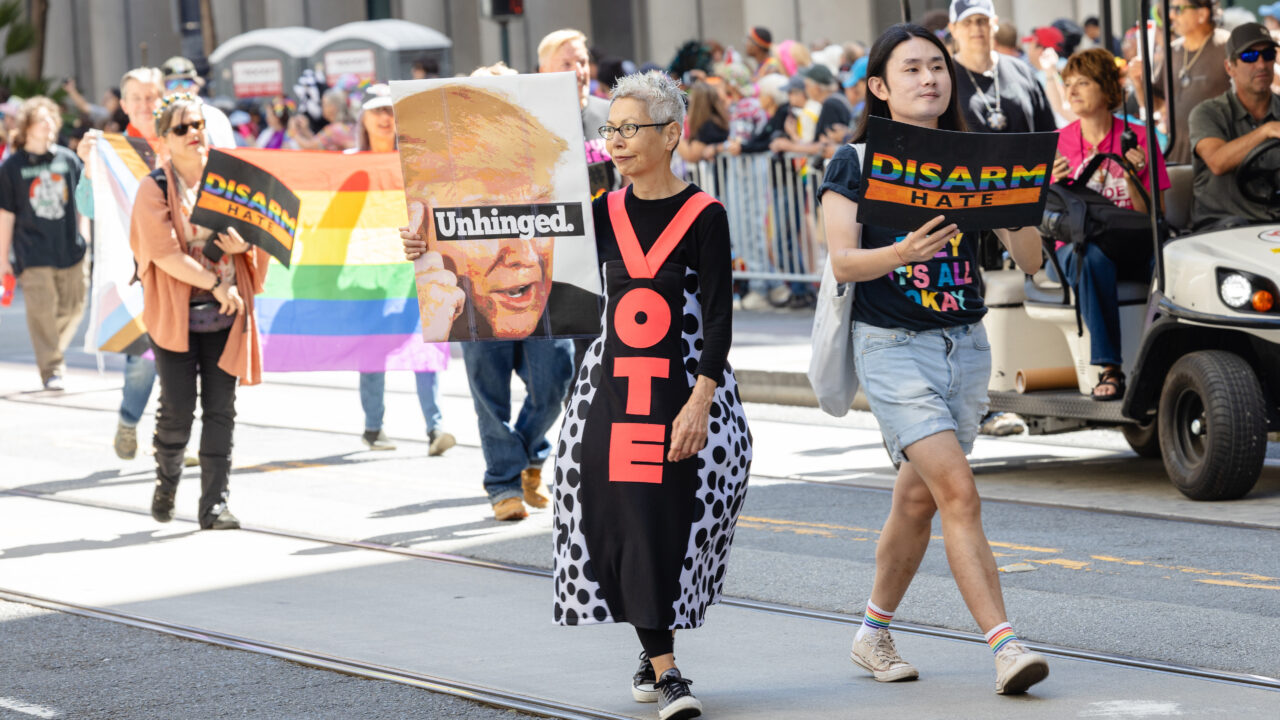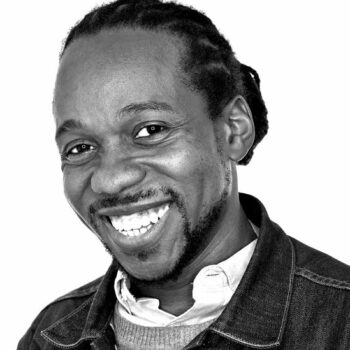Lead strategists at Working Families Party and The Uncommitted Movement join together to discuss the shared values that led them to push the Democratic party further left.
This article is a part of Left Out: The Missing Election narratives, a collection of unreported histories by publications inside of the Movement Media Alliance.
From the moment Uncommitted and the Working Families Party convened in June, one thing was clear: we shared a singular, urgent purpose—ending the flow of bombs and bullets to the Israeli government to save lives. At that time, President Biden was the Democratic standard-bearer, but his unwavering support for Netanyahu’s war crimes and the growing concerns about his age and electability couldn’t be ignored. With the devastating backdrop of an ongoing genocide campaign in Gaza, the political terrain we were navigating became fraught with complexity, and our movement’s resolve would be tested like never before.
As organizers, we know how difficult it is to hold a vision for the future while in the grips of overwhelming grief, but we do it nonetheless. The pain of loss, the suffering of the displaced, the anger at injustice—these emotions constantly hang over our work. And yet, the work must go on. This is where strategy and sorrow intersect, where the pulse of our organizing thrives amidst the heartache. But here too is where we risk losing our way. The tension between grief and action, between doing what feels necessary and what is possible today, can fracture movements if we don’t stay grounded in the work ahead.
This year, we’ve seen our values strained by disagreement, at times even by divisiveness—forces outside our coalition trying to exploit the tensions in our movement. The rhetoric of division, the urge to splinter, is something we’ve been asked to give in to. But we know that we can’t afford to let these moments of tension—the struggle for unity—undermine the greater good.
At the Democratic Party Convention, Uncommitted pressed the Democratic Party to live up to its own ideals by committing to an arms embargo and allowing a Palestinian American speaker on the stage. While the Working Families Party and its members had endorsed Harris in August, the party stood in solidarity with Uncommitted, amplifying its demands for a speaking role at the convention and an end to the bloodshed in Gaza. Although Uncommitted did not endorse Harris, its leaders organized within Arab and Muslim American communities to remind voters that Donald Trump is no ally to our cause, and that his presidency is a danger to our families, our freedom, and our futures.
The past year has taught us that movements and political parties, while distinct, have roles that can complement and strengthen each other. Movements like Uncommitted push the envelope of what is possible—they expand the boundaries of the political imagination. And political parties like the WFP, with their institutional muscle, are uniquely positioned to consolidate that expanded vision, turning what is possible into what is actual. There will be clashes, certainly—that’s to be expected. The nature of a healthy democracy means that competing forces will test the limits of what is possible. But those clashes, those tensions, are not failures; they are the sinew of our struggle.
1) Elections Happen With or Without Us
Electoral politics is a terrain of constant struggle—a battleground where ideological forces collide. After a hard loss, our inclination can be to check out and retreat from electoralism altogether.
We can stop trying to impact elections, but elections won’t stop impacting us.
This is why we need to organize both inside the Democratic Party and outside of it—through vehicles like the Working Families—to grow our power and elect new leaders to office, so we’re the ones setting party platforms and political agendas. That also means expanding our coalition to include others who share our values: labor unions, civil rights groups, faith communities, and all others who want to see peace, safety, and equality for all people.
2) Powerful Movements Require Both Carrots and Sticks
There are moments when grief clouds our judgment. It becomes easy to mistake every silence, every failure to act, as a betrayal. But we must also recognize that until we have the power to shape policy, we must keep the door open to those who may have previously disagreed with us. We can’t afford to set high bars of entry or attack anyone who wasn’t with us from the very beginning. It is only through building power—through persistence—that we can eventually pull those who have yet to join us into the fold.
We cannot let our critique be silenced out of fear of electoral repercussions. Democracy can’t thrive if we refuse to challenge the structures that are causing mass violence and suffering.
3) Tactics Are Tools, Not Ideology
The tactics we employ—whether through protests, policy advocacy, or electoral challenges—are not sacrosanct. They are tools, and they must be wielded strategically, not dogmatically. We can disagree on the methods, but we must never lose sight of our shared goals: ending the violence and securing peace and justice for all people. The real test lies in whether we can hold a principled debate on tactics, whether we can disagree without destroying the unity that gives our movement its strength.
We cannot get lost in the fog of criticism from outside forces—armchair analysts, social media pundits, or those who want to see us divided. Our responsibility is not to them, but to one another, to our communities, and to our shared vision for a better world. We must stay firmly grounded in the realities of our political moment, understanding the balance of forces, and charting the hard, often painful path between where we are today and where we need to be tomorrow.
4) A Movement on the Rise
Despite the difficulties, we are making progress. Public opinion is shifting. Sixty-one percent of Americans now oppose sending weapons to Israel. Seventy-seven percent of Democrats stand with us. Last month, nineteen Senators voted to block offensive weapons to the Israeli government—a rare and historic rebuke of AIPAC and President Biden. And in Georgia, Palestinian-American Representative Ruwa Romman secured a decisive re-election victory in a swing district, proving that our movement can not only survive, but thrive, even in politically contested spaces.
The work ahead is clear. We must grow—both in numbers and in unity. We cannot afford to let tactical disagreements or racial divisions break us. If we are to continue moving forward, we must deepen our alliances, build bridges in unlikely places, and keep our eyes on the prize: a future where U.S. foreign policy prioritizes justice, peace, and human dignity.
Our coalition won’t be divided. We will continue to build. We will continue to fight. And we will bring others along, until we have the power to reshape the world, not just for us, but for generations to come.

